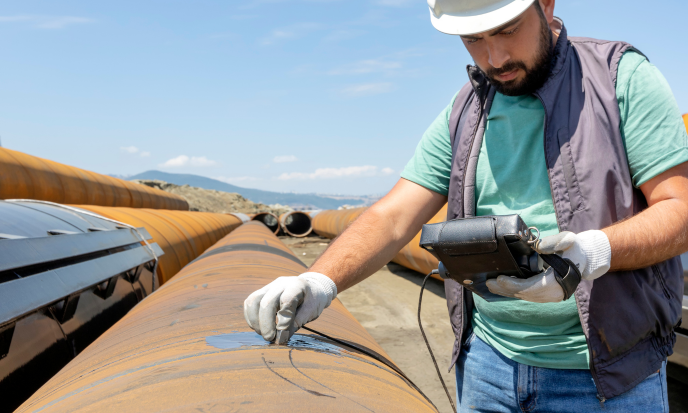
Reliable Steel Quality Testing in Chennai: What You Need to Know
When it comes to construction, infrastructure, and manufacturing, steel plays a vital role in determining the strength and durability of any structure. Whether you're building a residential complex, a commercial property, or an industrial unit, ensuring the quality of steel used is non-negotiable. That’s where steel testing comes into the picture.
However, choosing the right steel testing lab in Chennai (or any other region) can be a challenge. With so many labs offering similar services, how do you know which one is reliable, accurate, and worth your investment?
In this guide, we’ll walk you through everything you need to consider before selecting a steel testing lab.
What Is Steel Testing?
Steel testing is the process of evaluating various physical, chemical, and mechanical properties of steel to ensure it meets quality standards for construction and manufacturing use. This includes tests for:
- Tensile strength
- Yield strength
- Elongation
- Chemical composition
- Hardness
- Bend test
- Impact resistance
Proper testing ensures the steel complies with IS (Indian Standards) or international codes, and helps detect any substandard or counterfeit materials that can compromise safety.
Why You Need a Reliable Steel Testing Lab
- Accurate Test Results: Ensures your project uses steel that meets all regulatory and structural safety standards.
- Compliance: Helps avoid legal penalties and ensures you meet government or industry guidelines.
- Cost Efficiency: Prevents structural failures that could lead to rework, delays, or accidents.
- Quality Assurance: Establishes your reputation for using certified, high-quality materials.
✅ Factors to Consider When Choosing a Steel Testing Lab
1. Accreditation and Certifications
The most trustworthy labs are accredited by the National Accreditation Board for Testing and Calibration Laboratories, or NABL. The lab's adherence to international quality standards is guaranteed by NABL.
Also, check if the lab follows ISO/IEC 17025, which guarantees technical competence and accurate calibration/testing.
2. Range of Tests Offered
A quality laboratory should provide a wide range of steel testing services, such as:
Chemical analysis
Mechanical testing (tensile, bend, impact)
Non-destructive testing (NDT)
Corrosion resistance tests
The more versatile the lab, the better equipped it is to handle all your material testing needs.
3. Modern Equipment and Technology
Outdated or poorly maintained equipment can give inaccurate results. Look for a lab that uses modern, calibrated instruments such as:
Universal Testing Machines (UTM)
Spectrometers
Hardness testers
Charpy impact testers
Modern facilities are not just faster—they are also more reliable.
4. Qualified and Experienced Staff
Ensure that the lab has certified metallurgists, engineers, and lab technicians who are well-trained in testing procedures. Experience matters when interpreting test results and offering actionable insights.
5. Turnaround Time
In construction and manufacturing, time is money. A reliable lab should commit to quick sample collection and fast reporting without compromising accuracy.
Ask about their typical lead times and how they handle urgent requests.
6. Transparent Reporting
Look for labs that offer detailed, easy-to-understand reports with clear data and conclusions. The report should include:
Testing methods used
Reference standards
Sample photos (if required)
Certified test results with interpretations
Avoid labs that provide vague or overly technical reports without explanation.
7. Location and Sample Logistics
If you are based in or around Chennai, choosing a steel testing lab in Chennai makes logistics easier. Many labs also offer onsite sampling services to avoid transportation hassle.
8. Client Reviews and Case Studies
Always check testimonials, case studies, and online reviews. Feedback from contractors, engineers, or builders who’ve previously used the service is a good indicator of the lab’s reliability.
9. Pricing and Transparency
While cost should not be the sole deciding factor, it's wise to compare pricing across labs. Make sure the lab is transparent about:
Testing fees
Taxes
Sample handling charges
Any hidden costs
10. Customer Support and Communication
Communication is crucial when dealing with technical reports. Choose a lab that offers clear, responsive customer service, and is available to explain results or resolve queries.
Industries That Rely on Steel Testing Labs
- Construction and civil engineering
- Automotive and aerospace
- Oil and gas
- Railways
- Shipbuilding
- Defense and infrastructure
If your project is located in Chennai or Tamil Nadu, choosing a local steel testing lab in Chennai can offer advantages like:
- Faster sample collection
- Quicker turnaround
- Local expertise in regional construction standards
- Cost-effective logistics
Many Chennai-based labs are equipped to handle large volumes of tests while offering personalized service.
Final Thoughts
Choosing a reliable steel testing lab isn’t just a checkbox in your construction or production process—it’s a critical step toward quality assurance and long-term safety.
By evaluating accreditation, technology, staff expertise, and customer support, you can ensure you’re making an informed decision.
If you're in need of steel quality testing in Chennai, make sure the lab you select meets all the benchmarks discussed above. After all, when the strength of your structure depends on the strength of your steel, there’s no room for compromise.

